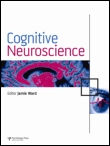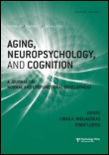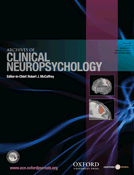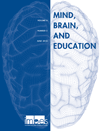
Journal of Neuropsychology
Scope & Guideline
Innovating Insights into Psychological Functions
Introduction
Aims and Scopes
- Cognitive Assessment and Measurement:
The journal prioritizes studies that develop and validate neuropsychological tests and measures, aiming to improve the accuracy and reliability of cognitive assessments in clinical populations. - Neuropsychological Rehabilitation:
There is a significant emphasis on research related to rehabilitation strategies for individuals with cognitive impairments due to brain injuries or neurological conditions, focusing on evidence-based practices. - Neuroscience and Cognitive Functioning:
The journal explores the neural mechanisms underlying cognitive processes, including memory, attention, and executive function, contributing to a deeper understanding of how brain structures support these functions. - Clinical Applications:
A strong focus on the clinical implications of neuropsychological research is evident, with studies addressing the diagnosis, treatment, and management of cognitive disorders across diverse patient populations. - Social Cognition and Emotion Recognition:
Research on social cognition, including emotion recognition and theory of mind, is prominent, highlighting the interplay between cognitive processes and social behavior.
Trending and Emerging
- Virtual Reality and Neuropsychological Assessment:
An increasing number of studies are exploring the use of virtual reality technologies for cognitive assessment and rehabilitation, indicating a trend towards integrating immersive technology in neuropsychology. - Impact of Neurological Conditions on Social Cognition:
There is a growing interest in understanding how various neurological conditions, such as Parkinson's disease and multiple sclerosis, affect social cognition and emotional processing, highlighting the importance of these areas in clinical practice. - Machine Learning in Neuropsychology:
The application of machine learning techniques to analyze neuropsychological data and predict outcomes is emerging as a significant trend, reflecting the journal’s commitment to incorporating advanced statistical and computational methods. - Neuropsychological Aspects of Aging:
Research focusing on cognitive decline and neuropsychological functioning in aging populations is on the rise, addressing the complexities of dementia and mild cognitive impairment. - Interdisciplinary Approaches to Neuropsychological Research:
There is an increasing trend towards interdisciplinary studies that combine insights from psychology, neuroscience, and even political science, reflecting a broader understanding of neuropsychological phenomena.
Declining or Waning
- Traditional Neuropsychological Assessments:
There seems to be a decline in studies exclusively focused on traditional neuropsychological assessment tools without innovative adaptations or validations, as the field moves towards more dynamic and technology-enhanced assessment methods. - Basic Neuroanatomy and Structure-Function Relationships:
Papers that solely discuss basic neuroanatomical concepts without direct application to cognitive functioning or clinical outcomes are becoming less common, indicating a shift towards more integrated approaches. - Generalized Cognitive Decline Studies:
Research that broadly addresses cognitive decline without specific focus on underlying mechanisms or targeted interventions is less prevalent, reflecting a shift towards more nuanced investigations. - Neuropsychology of Non-Disease Populations:
There is a noticeable decrease in studies focusing on neuropsychological aspects in non-clinical populations, as the journal increasingly emphasizes clinical implications and applications. - Historical Perspectives on Neuropsychology:
Papers that provide historical overviews or reviews of past research without substantial new data or insights are becoming less frequent, suggesting a preference for forward-looking research.
Similar Journals

Cognitive Neuroscience
Unraveling the Mysteries of CognitionCognitive Neuroscience is a pivotal journal in the ever-evolving field of cognitive neuroscience, published by Routledge Journals, Taylor & Francis Ltd, in the United Kingdom. Since its inception in 2010, this journal has dedicated itself to publishing innovative research that explores the intricate relationships between neural mechanisms and cognitive processes. With an increasing focus on interdisciplinary studies, it addresses critical issues from both theoretical and empirical perspectives. Although it currently holds a Q3 ranking in the Cognitive Neuroscience category, it has made significant strides in its Scopus ranking, now positioned at #62 out of 115, reflecting its growing impact on the academic community. Researchers and professionals will find the journal an invaluable resource for staying updated on the latest findings and methodologies in the field. While the journal operates under a traditional access model, it ensures high visibility and dissemination of crucial research that shapes our understanding of the brain's role in cognition. As it continues to evolve through to 2024, Cognitive Neuroscience remains committed to fostering collaboration and inspiring future innovations within the discipline.

AGING NEUROPSYCHOLOGY AND COGNITION
Illuminating the path to cognitive health in later life.AGING NEUROPSYCHOLOGY AND COGNITION, published by ROUTLEDGE JOURNALS, TAYLOR & FRANCIS LTD, is a leading scholarly journal that spans the interdisciplinary fields of psychology, neuropsychology, and gerontology. With a strong focus on understanding aging processes and cognitive function, this journal serves as a critical platform for researchers, clinicians, and students dedicated to advancing knowledge in the realm of cognitive aging. The journal, established in 1994, presents high-quality research articles, comprehensive reviews, and innovative studies that contribute to the discourse surrounding mental health and aging. Notably, it has been recognized with a 2023 Q2 ranking in Experimental and Cognitive Psychology and Neuropsychology categories, reflecting its significant impact within these domains. The journal includes open access options, making it widely accessible to a global audience. Researchers interested in the latest findings and theoretical developments in aging neuropsychology will find this journal an invaluable resource, further enhanced by its robust Scopus rankings and commitment to academic excellence through 2024 and beyond.

NEUROPSYCHOLOGICAL REHABILITATION
Pioneering Strategies for Cognitive RehabilitationNEUROPSYCHOLOGICAL REHABILITATION is a prestigious peer-reviewed journal dedicated to the field of neuropsychology and rehabilitation. Published by Routledge Journals, Taylor & Francis Ltd, it stands at the forefront of research and development in applied psychology, arts and humanities, and rehabilitation, boasting an impressive impact factor and a distinguished ranking within various academic categories. With a strong commitment to advancing the science of rehabilitation and cognitive recovery, the journal aims to provide a platform for innovative research, systematic reviews, and clinical findings that inform best practices in the field. As it converges into its third decade of publication—from 1991 to 2024—NEUROPSYCHOLOGICAL REHABILITATION remains essential for researchers, clinicians, and students seeking cutting-edge insights and methodologies to enhance patient care and cognitive rehabilitation strategies.

JOURNAL OF COGNITIVE NEUROSCIENCE
Bridging neuroscience and cognition with groundbreaking research.Welcome to the JOURNAL OF COGNITIVE NEUROSCIENCE, a premier publication in the field of cognitive neuroscience, published by the esteemed MIT PRESS. Since its inception in 1989, this journal has been at the forefront of advancing our understanding of the neural mechanisms underlying cognitive processes, boasting an impressive convergence period through 2024. With its Q1 ranking in the 2023 cognitive neuroscience category, it stands out among 115 peers, indicating its critical role in shaping contemporary research. The journal offers a comprehensive array of research articles, reviews, and methodologies aimed at researchers, professionals, and students alike, facilitating the exploration of complex cognitive functions. While not an open-access journal, it provides essential insights and significant contributions to the neuroscience community, making it an invaluable resource for anyone keen on delving into the intricacies of the human brain.

Revista Chilena de Neuropsicologia
Advancing Neuropsychology through Research and DialogueRevista Chilena de Neuropsicología, published by Universidad de la Frontera, serves as a vital platform for the dissemination of research and advancements in the field of neuropsychology. This peer-reviewed journal aims to foster scholarly dialogue among researchers, professionals, and students, providing insights into the neuropsychological implications of various conditions and therapeutic interventions. By emphasizing high-quality, evidence-based studies, the journal significantly contributes to the understanding and treatment of neuropsychological disorders. While currently not an open-access platform, the Revista Chilena de Neuropsicología remains committed to enhancing the visibility and impact of neuropsychological research in Latin America and beyond. Researchers seeking to publish their findings will find it a reputable outlet to share transformative work that drives future studies and clinical practices.

ARCHIVES OF CLINICAL NEUROPSYCHOLOGY
Transforming Research into Clinical ExcellenceARCHIVES OF CLINICAL NEUROPSYCHOLOGY is a premier academic journal dedicated to the vital intersections of clinical psychology, neuropsychology, and psychiatry, offering researchers and clinicians a platform to publish cutting-edge findings and comprehensive reviews. Published by Oxford University Press, the journal aims to advance the understanding of the cognitive and psychological aspects of neurological conditions through rigorous empirical research and innovative methodologies. With an impressive range of quartile rankings, including Q2 in Clinical Psychology and Neuropsychology, the journal stands out for its commitment to enhancing clinical practices and improving patient outcomes. Although it does not offer open access, its reputation is underscored by a competitive impact factor, making it a critical resource for professionals in the field looking to stay informed on the latest developments. The journal has been a respected outlet since 1986, and as it continues into 2024, it remains a beacon for scholarly discourse in neuropsychology and mental health.

PSYCHOLOGIA
Connecting Minds through Groundbreaking ResearchPSYCHOLOGIA is a distinguished academic journal published by the Psychologia Editorial Office, focusing on the broad field of psychology. Originating from Japan, the journal serves as a platform for innovative research and insights into various psychological phenomena, contributing significantly to the advancement of psychological knowledge since its establishment in 1996. With an ISSN of 0033-2852 and an E-ISSN of 1347-5916, PSYCHOLOGIA primarily targets researchers, professionals, and students who are passionate about the intricacies of human behavior and cognition. Currently categorized in the Q4 quartile of psychology (miscellaneous) based on 2023 metrics, it holds a Scopus rank of #157 out of 216, indicating its developing presence within the academic community. Despite being published without open access options, the journal remains committed to fostering scholarly dialogue and disseminating significant findings that shape contemporary psychological research. As it converges towards its issue set for 2024, PSYCHOLOGIA continues to be an essential resource for those seeking to deepen their understanding of psychological sciences.

Mind Brain and Education
Shaping the Future of Education with Scientific RigorMind, Brain, and Education is a pioneering journal published by WILEY, focusing on the intersection of cognitive neuroscience, developmental psychology, and educational practices. With an ISSN of 1751-2271 and E-ISSN 1751-228X, this esteemed publication offers a platform for researchers and educators to disseminate innovative findings that bridge theory and practice in learning environments. Spanning from 2008 to 2024, the journal has established a reputation as a vital resource in the academic community, recognized in 2023 as Q2 in Developmental and Educational Psychology and Education, and Q3 in Cognitive Neuroscience and Experimental and Cognitive Psychology. With Scopus ranks demonstrating its impact, especially in Education and Psychology fields, Mind, Brain, and Education invites submissions that advance knowledge and application of educational strategies informed by brain science. Researchers, professionals, and students will find critical insights and collaborative opportunities to enhance educational outcomes and cognitive development in learners.

Cuadernos de Neuropsicologia-Panamerican Journal of Neuropsychology
Pioneering insights into diagnosis and rehabilitation.Cuadernos de Neuropsicologia-Panamerican Journal of Neuropsychology is a premier open access journal dedicated to advancing the field of neuropsychology through the dissemination of high-quality research. Published by NEUROPSICOLOGIA CL in Chile, this journal has been a vital resource for the academic community since its inception in 2007. With a focus on various aspects of neuropsychological theory and practice, the journal aims to bridge the gap between research and application, addressing key issues in diagnosis, treatment, and rehabilitation of cognitive disorders. By providing a platform for innovative studies, systematic reviews, and compelling case reports, Cuadernos de Neuropsicologia plays an instrumental role in shaping the future of neuropsychology in the Pan-American region and beyond. Researchers, clinicians, and students alike will find this journal invaluable for staying informed on the latest trends and findings in their field.

COGNITIVE NEUROPSYCHOLOGY
Exploring the Intersection of Cognition and Neural ScienceCOGNITIVE NEUROPSYCHOLOGY, published by ROUTLEDGE JOURNALS, TAYLOR & FRANCIS LTD, is a premier academic journal that has established itself as a vital resource in the fields of cognitive neuroscience, neuropsychology, and psychology since its inception in 1984. With an esteemed impact factor that reflects its significance within the academic community, this journal is classified in the Q1 category for Arts and Humanities (miscellaneous) and Q2 in various other fields, including Cognitive Neuroscience and Developmental Psychology, based on the latest evaluation of 2023. COGNITIVE NEUROPSYCHOLOGY provides a platform for the dissemination of innovative research findings and theoretical advancements that deepen our understanding of cognitive processes and behavior in relation to neural systems. The journal also boasts a robust Scopus ranking, ensuring that articles published are of the highest caliber. Though it follows a traditional publishing model, the journal's commitment to rigorous peer review guarantees that it remains an authoritative voice for researchers, professionals, and students devoted to advancing knowledge in these critical areas of study.